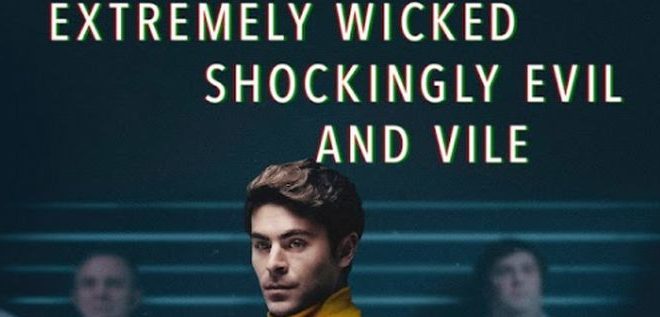
Interviews
Extremely Wicked, Shockingly Evil & Vile
By: Ashlee Dell’Arciprete
Lily Collins
Q) The Ted Bundy case is obviously one of the most prominent investigations in history. What drew you to take on this role portraying Bundy’s long-time girlfriend, Liz Kendall?
A: I wanted to be a part of it because I felt like it was a really interesting spin on what could’ve been just a normal hackney slash film. We deal with the psychological and emotional state of Bundy as well as Liz. As a woman, I felt like telling the story for other women was really important, and to give them a voice that Liz never really ended up having, was really important to me.
Q) Were you able to personally meet with her through the filming process?
A: I was. I was able to meet with her and her daughter Molly once and they were so giving of their time in order to answer questions and give their support, which I was really hopeful for.
Q) What was the greatest thing that you were able to learn from your experience portraying Liz?
A: The biggest thing, I guess, it just hits home. You really can’t think that you know everyone just by looking at them. Ted was a charmer, he read the room, he knew how to perform for different audiences and people are really good at that. It doesn’t matter if it was in the seventies, eighties, nineties. It will always be that way so it’s important that you trust your gut and be as safe as you can.
Haley Joel Osment
Q) You play Jerry, one of the supportive people in Liz’s life who later on begins dating her after Bundy. Please tell me what it was like portraying that supportive friend trying to convince Liz that Bundy wasn’t exactly how he seemed?
A: It was a riff because most of these guys had to drive into the murder and the darkness of it. My character, sort of, got to be representative of a hopeful feeling that Ted Bundy’s surviving victims could come out of it and have lives.
Q) Have you ever seen yourself being that same supportive friend before?
A: I certainly hope so. You always want to be the good guy and not the manipulator guy. Jerry’s an inventive character, but being contrasted to Ted who treated women like objects to be manipulated and toyed with Jerry really does love the ladies and want to be supportive in any way he can.
Angela Sarafyan
Q) You portray Joanna, one of the only people in Liz’s life who believes Ted is guilty and act as her anchor to reality of Ted. What was it like taking on this role?
A: So, the movie is really about Liz and her experience coping with this person and these particular situations. I, similar to Haley [Joel Osmet], play more-so the voice of reason. And so, I love that I got to play the part because in that way I was able to bring light to something that she hated. You have that person in your life that tries to tell you the truth and you don’t want to hear it – that’s who she was. I love that view of that part in the movie because she’s the only female character in the film that sees it.
Q) Being that the film was drawn through a female perspective, did that draw you more to want to play Joana in the film?
A: Oh of course, yes. The experience of him, how much she gets manipulated, how much his charisma takes over, definitely.
Q) What was the environment like on set like for you and Lily filming such a sensitive subject manner?
A: It was strangely very easy and we were able to be there for each other, so that part is very important.
Q) What do you hope viewers are able to take away from watching this film with such a unique perspective?
A: My experience from watching the movie was how easily manipulated or when you get lost in the truth, you are when you get lost in this illusion that you think is love. When you watch the movie, you might find yourself rooting for somebody you know that you shouldn’t. And that’s what happens in life, sometimes we root for the wrong person. I hope this shows through in the film and thanks so much.
Michael Werwie (Screenwriter)
Q) You had originally written this screenplay for this film based on Liz Kendall’s memoir long before Joe Berlinger signed on to direct. What was it like seeing your script come to fruition and what was the process like?
A: Yes, I actually wrote this nine years ago as an original script and through a bunch of research I kind of came up with an alternate view on the familiar story of Ted Bundy. Once the movie became real, we got the participation of Liz Kloepfer and ultimately used her book as an inspiration for some of the research that we did at the eleventh hour. Joe was doing the documentary series for this movie. He had an intimate working knowledge of Ted Bundy for from that experience and it was a perfect match for the script once we were able to work together.
Q) The movie is told through the eyes of Liz to tell this unique perspective that hasn’t really been portrayed through a narrative film before. How did you and the rest of the creative team collectively agree to film through her perspective?
A: I think the movie is as much about manipulation and deception and betrayal as anything. And in order to truly emotionally feel that betrayal, you have to relate on an emotional level of the character and I thought there’s no better way to do that than a love story. And I thought the most powerful way into a serial killers’ story would be to see a serial killer operate with no serial killing. This isn’t a violent movie, it’s a love story. And it’s a story about being gaslighted by the person you love, truth and ultimately empowerment. It’s about confronting that truth even though it’s the last thing you want to do.
Q) Instead of glamorizing Ted Bundy, this film definitely does not do that, and tells a unique perspective into this love story and really proves how easy people can manipulate. What do you hope viewers are able to take away from this film and this story in the unique perspective you tell it from?
A: Thank you, yes, I don’t think it’s mortifying or glamorizing anything. I think it’s the opposite. I think we’re telling a character-based love story and the romantic male leads just happens to be the worst serial killer of all time. We’re not making light of that at all. In fact, I think it’s the complete opposite. Once you get the end of the film and you’ve gone through the emotional rollercoaster, to me it’s pretty obvious who comes out the winner and who’s the loser. As far as what I want people to take away from it, to me it’s often a story about hope, it’s about strength, it’s about empowerment, it’s about a victim standing up for herself and confronting her abuser and moving on stronger.
Joe Berllinger (Director)
Q: After having done the Conversations with a Killer: The Ted Bundy Tapes docuseries, what drew you to want to revisit Bundy and be a part of Michel [Werwie]’s screenplay as a director? And further, what made you pick Ted Bundy?
A: Conversations with A Killer is deep dive into the mind of the killer. No detail is spared about how a serial killer kills and what he did. And the one thing that eluded me into making the documentary series was really capturing the experience of how a serial killers deceive and betray because that was Bundy was about. He eluded capture for so long because people just thought he was a good guy and was incapable of doing these kinds of crimes. So, the movie allowed me to tell that part of the story. Not when the serial killer was killing, but when the serial killer was living the other part of this life–because that’s the scarier part. In my twenty-five years of doing real crime to my experience with the people that do evil in this world aren’t some monsters out there who are weird social outcasts. The people that are evil are the people that you most often trust and are the people you least expect are the most capable of these things. That’s scarier that you don’t know who the person is next to you potentially, so we wanted to make a film about betrayal and deception and how Bundy eluded capture for so long – that was something I wasn’t able to nail in the documentary.
Q) What made you want to tell this from Liz’s perspective?
A: It was because Bundy had this other life. He had this girlfriend who thought he was a wonderful guy. He was a wonderful surrogate father to this woman’s daughter from another relationship. Lily and I actually went to visit the real Liz Kloepfer and we went through photo album after photo album of this happy family unit – the family of this man, this woman and this child. Birthday parties, ski trips, camping trips, but one of those people was Ted Bundy and so that really crystalize the fact that these people have other parts of their lives where they’re deceiving and deluding people and that’s why he eluded capture for so long. So, telling the story from her perspective allowed me to tap into that.
Extremely Wicked, Shockingly Evil & Vile held its New York premiere at the 2019 Tribeca Film Festival and is now streaming on Netflix.
Read our review of Extremely Wicked, Shockingly Evil & Vile here!
View the rest of our red carpet coverage from the 2019 Tribeca Film Festival here!




You must be logged in to post a comment Login